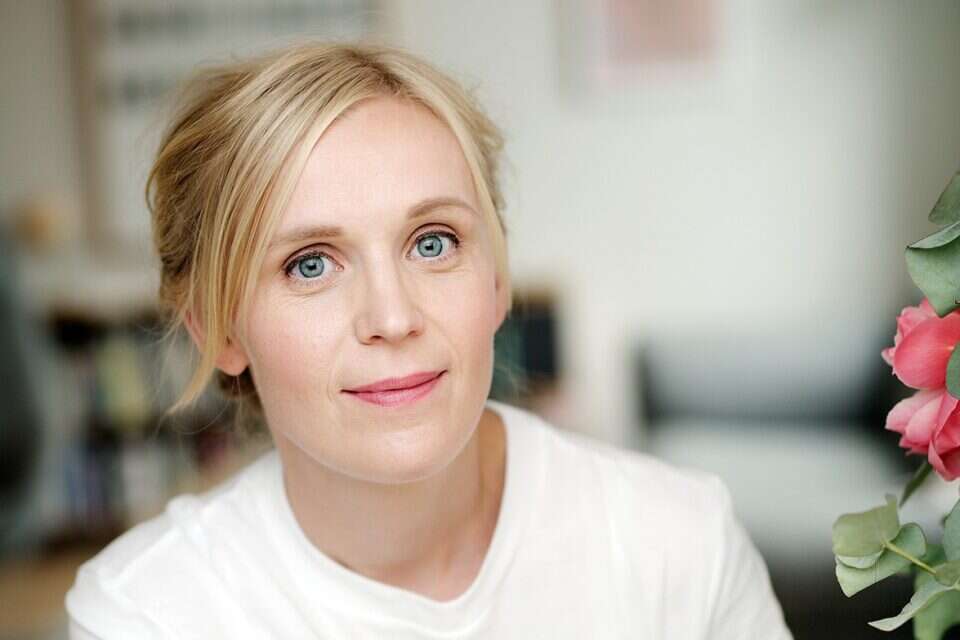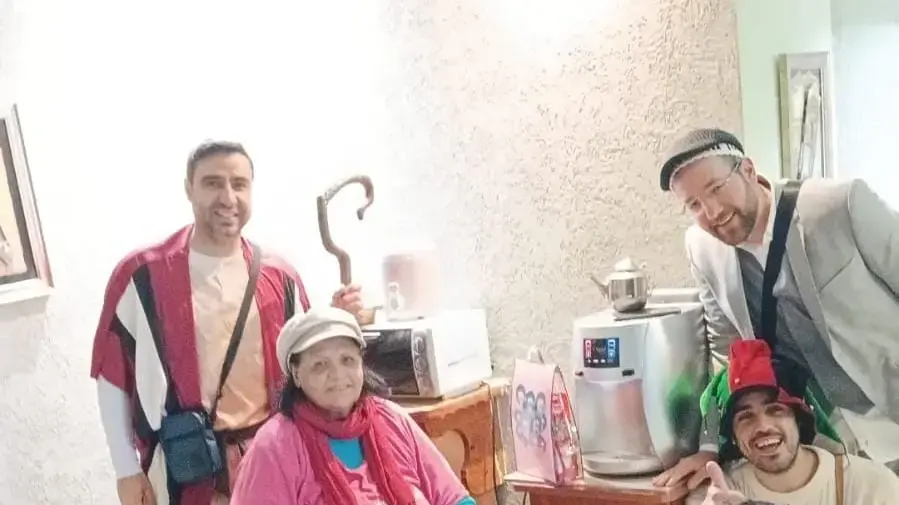Matthias is an elderly woman who lives in one of the suburbs of Oslo and feels so lonely that she is considering hanging a "lost" ad with her picture: "Has anyone seen this old woman?"
Although she lives in an apartment building with her husband and a handful of neighbors around them, it seems to her that no one is interested in her, and when she dies no one of her neighbors will notice for days or years.
She plans to bury a time capsule in the ground with the things that set her apart, but is undecided as to what sets her apart from her DNA. ".
The person who wrote the gloomy-comedic character of this eccentric and captivating elderly woman is the Norwegian writer Shersti Onsdetter Skomsvold, who was 29 at the time the book was published.
She wrote it after in her 20s, while studying engineering, she contracted a serious illness that fascinated her to bed.
As she lay in her room, she would stick notes on the wall above her with snippets of consciousness of a lonely elderly woman like her.
"Every time I was scared, I would force myself to think about this old woman, and write more notes. I felt very old in my 20s. Because I was so alone, it was easy for me to connect with Matthew's feeling that her life goes by without her participating. "I also knew that the strange and irrational thoughts that come to her from time to time stem from the fact that she has no one to share things with, no one to correct those crooked thoughts and show her where she is wrong in relation to herself."
Sometimes there is a feeling that she is the one who chooses loneliness. Loneliness causes her suffering, but when she looks at her neighbors or the mothers in the garden, it turns out that in fact she does not particularly care about them either, she even dislikes them.
American poet Marian Moore said that the cure for loneliness is to be alone ('The Cure For Loneliness Is Solitude'), and I sympathize with that. She feels tolerated only when she is alone, and I also sometimes feel that being alone is my protection. "
Better reads
"The faster I go, the smaller I am" (which is being published in Hebrew these days at the Ruth Library) was published in Norway in 2009 and won Skomswald the prestigious award named after the writer Tariy Vesos.
She has since published a number of other books, including a play based on "The faster I go, the smaller I get."
She adopted the title of the book from a principle she learned in her engineering studies, according to which the faster an object moves, the smaller it is - which she thinks describes Matthew, because she hurries away from people and it makes her smaller and invisible, not only to them but also to her.
For Skomswald, the refuge from loneliness was writing.
"I grew up in a house that was always read and had a lot of books, but only after I got sick did literature become a kind of salvation. When I got sick I felt inhuman, and I had a feeling that if I could write a book, I would feel like a part of humanity again. "More, and I began to pay attention to the language and voice in which I write no less than to the story."
Translator of the book, Dana Caspi,
One of the writers who significantly influenced her tight writing style was, she says, that of Eskildsen, who also wrote quite a bit about the world of single and older characters, including two of his recently translated books into Hebrew: "Thomas P.'s Recent Lists for the Public" 2011), and "A Great Desert Landscape" (Chameleon Publishing, 2014).
Decreased guarantee values
But the description of the transparent and lonely old woman, who feels that no one around her cares for her, may come as a surprise if one considers that it was written and takes place in Norway, which has a particularly generous social-democratic policy towards its elderly and needy.
The book's translator, Dana Caspi, who pointed out some of the book's historical and political connections at the end of what she added to the book, says: "When we think of Norway, we identify it as a reformed country, starring in all measures of happiness and wealth. "One can ask how they reconcile with the objective metrics."
According to Caspi, the alienated relationship between Matthias and its neighbors can also be read against the background of ongoing social processes of declining bail values and mutual aid.
These processes are referred to by writers such as Per Peterson ("Going Out to Steal Horses") and Roy Jacobsen ("The Invisible"), who often express in their books a longing for humble and rural Norway, as it was before the discovery of oil reserves in the late 1960s. .
"It could be that precisely because the government gives so generously, mutual guarantee is weakened," Caspi explains, "because people think they are exempt from caring for their old and poor neighbors, they think, 'that the state will take care of them.' "
"The irony makes Skomswald's writing unique," says Caspi, "because irony is usually not part of the accepted language in Norwegian novels, which are characterized by gloom and seriousness. Although there is humorous writing in Norwegian literature, it usually does not fit into the novels. Its, that humor does not replace pain. "
When I ask Skomswald, in a zoom interview from her home in Oslo, how such a transparent and lonely old woman figure is created in a country like Norway, which actually has a particularly generous network of support for its senior citizens, she says she has no criticism of the state's support level.
Only recently, she says, has she returned to writing after a seven-month maternity leave, and now it is her husband who replaces her on maternity leave and allows her to take up writing.
"When I wrote the book I did not think to say anything political, although Matthias' situation does have political consequences. Like many other elderly people in Norway, Matthias manages to sustain herself in the meantime. Her problems are not economic. What surprised me when I wrote the book was the fact. The high suicide rate among the elderly, which I assume loneliness is one of the causes of. So it's true that the government generously supports us, but loneliness is an unresolved issue. "My baby, and I see how the old people's eyes light up. After all, for a large part of the day they sit alone in their rooms, isolated, especially if they have no family and acquaintances, and they are thirsty for contact."
So perhaps the conclusion is that the state should also address loneliness?
"Maybe. And maybe I should visit my older neighbors, too."
Were we wrong?
Fixed!
If you found an error in the article, we'll be happy for you to share it with us












/cloudfront-eu-central-1.images.arcpublishing.com/prisa/IGZ7GOCXZ5GUPAQ2HWGK6Z76BU.jpg)